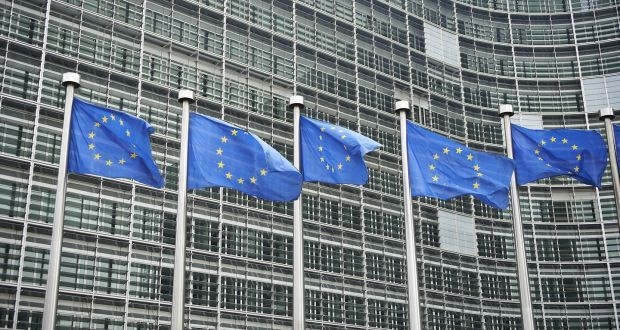



The EU has been forced to pass the "escape clause” allowing its members to freely spend money on fighting the COVID-19 epidemic. (Photo: Irish Times)
With COVID-19 outbreaks having become increasingly intense, many European Union (EU) economies, especially Eurozone members, have been pushed closer to the brink of "collapse”, as economic activities stagnate amid a spike in the anti-epidemic budget. Despite spending hours in video conference discussions on March 24, finance ministers of the euro area (Eurogroup) still could not set aside their disagreements to put forward measures to support regional economies, particularly the activation of the European Stability Mechanism (ESM) package of reforms. However, President of the Eurogroup Mario Centeno stated that discussions had just begun and that the parties needed more time to reach consensus.
The current economic difficulties of Eurozone countries are reminiscent of the public debt crisis in this region nearly 10 years ago, when the ESM was founded and put into force to rescue EU member economies who were immersed in debt. The ESM was considered the most important "weapon” to deal with the 2011 debt crisis in the Eurozone, by which the EU provided loan guarantees to member countries, accompanied by harsh conditions and reforms. At the moment, the ESM is ready to mobilise about EUR400 billion, and possibly an even greater amount, for emergencies. In the context of many Eurozone economies facing difficulties due to the impact of COVID-19, the ESM is expected to help unfreeze credit flow within the EU to assist its members.
The first discussion on ESM activation ended up in failure although the Eurogroup confirmed its commitment to seeking all possible ways to assist Eurozone economies through the current difficult time. The root cause of the failure was disagreements between two groups of member countries, in southern and northern Europe. Backed by France and Spain, southern member Italy proposed the EU promptly deliver a "widespread response” and "historic solidarity action” on finance. This implies the EU announcing financial bailout packages and emergency assistance for countries at the front lines of the anti-epidemic battle. Rome’s desire is understandable as Italy is suffering greatly from the consequences of COVID-19.
However, members in the north, led by the Netherlands and Germany, were not interested in the proposal of their southern counterparts, stating that despite the dangerous developments of the pandemic, they are as yet insufficient to warrant resorting to the ESM, the EU’s most important financial fund. On March 18, the European Central Bank (ECB) announced a new plan called the Pandemic Emergency Purchase Programme (PEPP). Accordingly, the ECB will spend up to EUR750 billion purchasing bonds to help cope with risks caused by COVID-19 to monetary policy transfer mechanisms and Eurozone economic prospects. According to the Netherlands, at the moment, the size of the ECB’s support package is sufficient, without the need for ESM capital. Meanwhile, despite announcing its support for the activation of the term "solidarity” in the EU’s treaty to provide a comprehensive and quick response to the spread of COVID-19, Germany still objected to Italy’s idea of "financial action”, termed "corona bond” by Berlin. In general, countries in the north and rich countries in the EU have been dissatisfied with some southern members’ violations of financial discipline which pushed the Eurozone into a serious public debt crisis in the early years of the last decade.
Nearly a decade has gone by but the EU has not yet forgotten the financial troubles that stemmed from serious budget deficits in some member countries. More than anyone else, the bloc’s member countries also understand the problems they are experiencing due to COVID-19. To help its members cope with the pandemic, the EU was forced to "break the rules” in an unprecedented move, passing the "escape clause” allowing national governments to freely spend money on fighting the epidemic without being restricted by rules regarding a budget deficit ceiling of 3% of annual GDP.
The danger of an economic downturn has been flagged with a level of severity no less than the devastation caused by COVID-19. There remains an arduous journey ahead to discuss the rescue of the Eurozone economies amid widespread fear over the disease.
Source: NDO